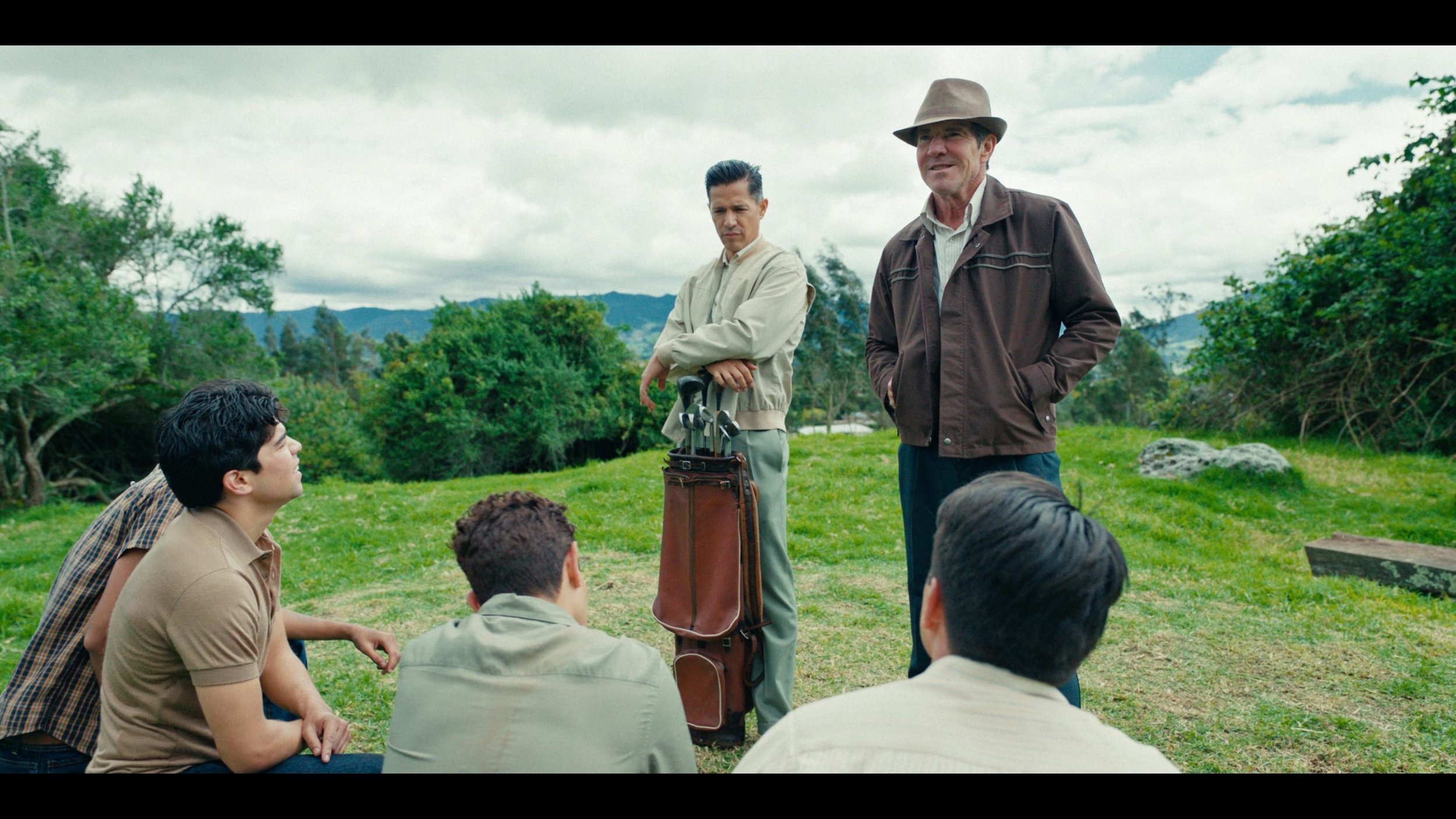'The Long Game' Takes Too Much From Its Name While Plainly Aiming To Please | SXSW
For(e)mulaic.
(L-R) Jay Hernandez & Dennis Quaid in The Long Game. Photo Courtesy of Fifth Season / Mucho Mas Media / Bonniedale
Another day at SXSW, another hopeful crowdpleaser. After ending day two of the festival with Flamin' Hot, I returned to the Paramount Theater to kick off day three with The Long Game, the latest from director Julio Quintana (Blue Miracle). The film, set in Texas in the late 50s, follows JB Peña (Jay Hernandez of Magnum P.I.) as he assembles a high-school golf team made up of five Mexican-American students in hopes of going to (and winning) the state championship. Writers Paco Farias and Jennifer Stetson do a perfectly fine job of bringing this true story (adapted from Humberto Garcia’s novel) to the big screen, throwing in enough positive messages and “clap moments” to satiate their audience while keeping a focus on the tasks at hand. That said, their focus certainly drifts, with enough sub-plots to take you off the green and into the rough, only dragging out the film’s (incredibly predictable plot). A recut should be in order because while the side-stories contribute to character development, the film is simply 15-20 minutes too long.
One of the best things about The Long Game is how much fun the cast has in the film. Even though they tackle somewhat difficult topics at times, the overall tone remains light and accessible, regaining some footing where the film missteps in regard to its pacing and themes. Comparisons to films like Field of Dreams may be inevitable for this sport-driven underdog story, but where Dreams uses sincerity and appreciation for a sport to win over its viewers, The Long Game throws in too many conflicting (and predictable) ideas that dilute the story. The undertones of conformity and “fitting in” are good contributions to the message the film brings, but ultimately could’ve been handled in a more effective manner.
The Long Game. Photo Courtesy of Fifth Season / Mucho Mas Media / Bonniedale
From Dennis Quaid and Cheech Marin (who provides great comedic relief) to Julian Works (of 9-1-1: Lone Star), while putting on solid performances, it’s clear that everyone is enjoying themselves, helping to maintain the light tone of the movie. The tone does lean darker at a few points, but not long enough to distract from the overall narrative and themes we’ve been presented with thus far. Quintana’s presence as a director is certainly made clear with bold, striking visuals, but not always in a good way — not every shot of a character needs to be six inches from their face. However, the sequences that primarily focus on golf are shot interestingly enough to stand out from the golf movies of the past. Quintana thrives with the period piece aspect of Game, creating an aesthetic that feels reminiscent of somewhere we’ve been before but keeping our attention enough to stop us from wondering where.
In its simplest form, The Long Game is about pressured inequality and how sometimes, we can’t immediately do anything about it. Even though this story happened over 60 years ago, the ideas and topics it addresses are relevant to this day, providing an effective commentary on racism, xenophobia, and othering. The Long Game is the same underdog story we’ve seen before and falls into its narrative beat-for-beat, crossing tropes off a list. However, it’s hard to deny the charm and wholesomeness of the film, which save it from being too cheesy and by-the-book.
The Long Game premiered at the SXSW Film & TV Festival on March 12.


